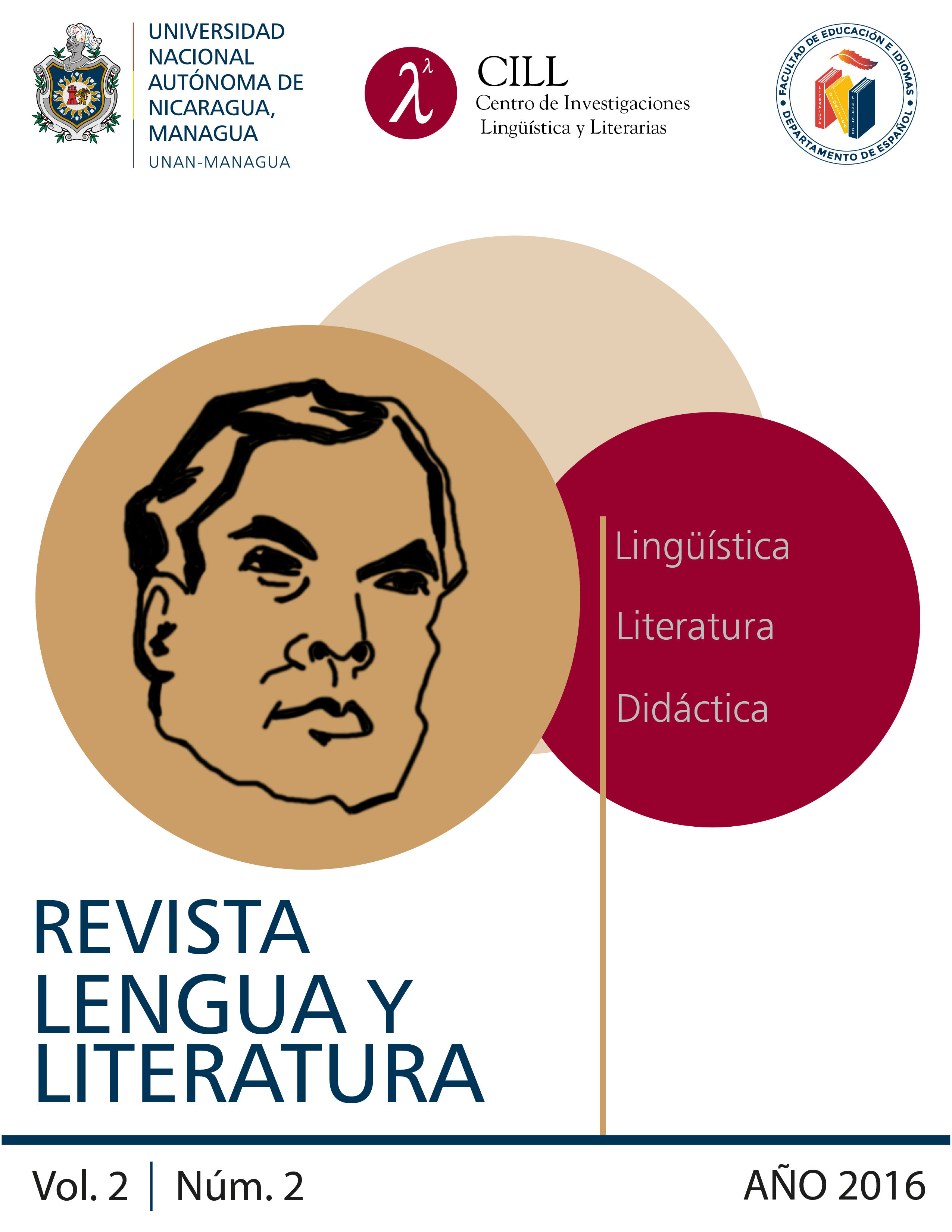The poetic and linguistic discourse in the story Mr. Wipper by Pancho Madrigal
DOI:
https://doi.org/10.5377.rll.v2i2.9355Keywords:
idiosyncrasy, Nicaragua, stories, discourse analysisAbstract
It has been the tradition of some Latin American writers and intellectuals to define the characteristics Citizen groups representative of the idiosyncrasy of their peoples. In Chile, for example, Isabel Allende in her work My invented country describes in certain passages the form in which he perceives his country and its inhabitants. Similarly, Octavio Paz in Labyrinth of the Soledad fulfills that same mission by describing the Mexican woman and man. By course in Nicaragua we also find a well-known and beloved poet and journalist, Pablo Antonio Cuadra who in his book The Nicaraguan painted the common citizen of our pine land in such a way, that it does not escape that historical look that before has been recorded in the play El Güegüense, a book in which grace, mischief and cunning they become their essential characteristics.
Downloads
References
Jacobson, Roman. Lingüística y poética. Trad. Ana María Gutiérrez Cabello. Madrid : Cátedra, 1974. Vaugh, Linda.
Roman Jacobson’s Science of Language. Netherland: The Peter Ridder Press. 1976.
Downloads
Published
How to Cite
Issue
Section
License
Copyright (c) 2022 Universidad Nacional Autónoma de Nicaragua, Managua

This work is licensed under a Creative Commons Attribution-NonCommercial-ShareAlike 4.0 International License.






